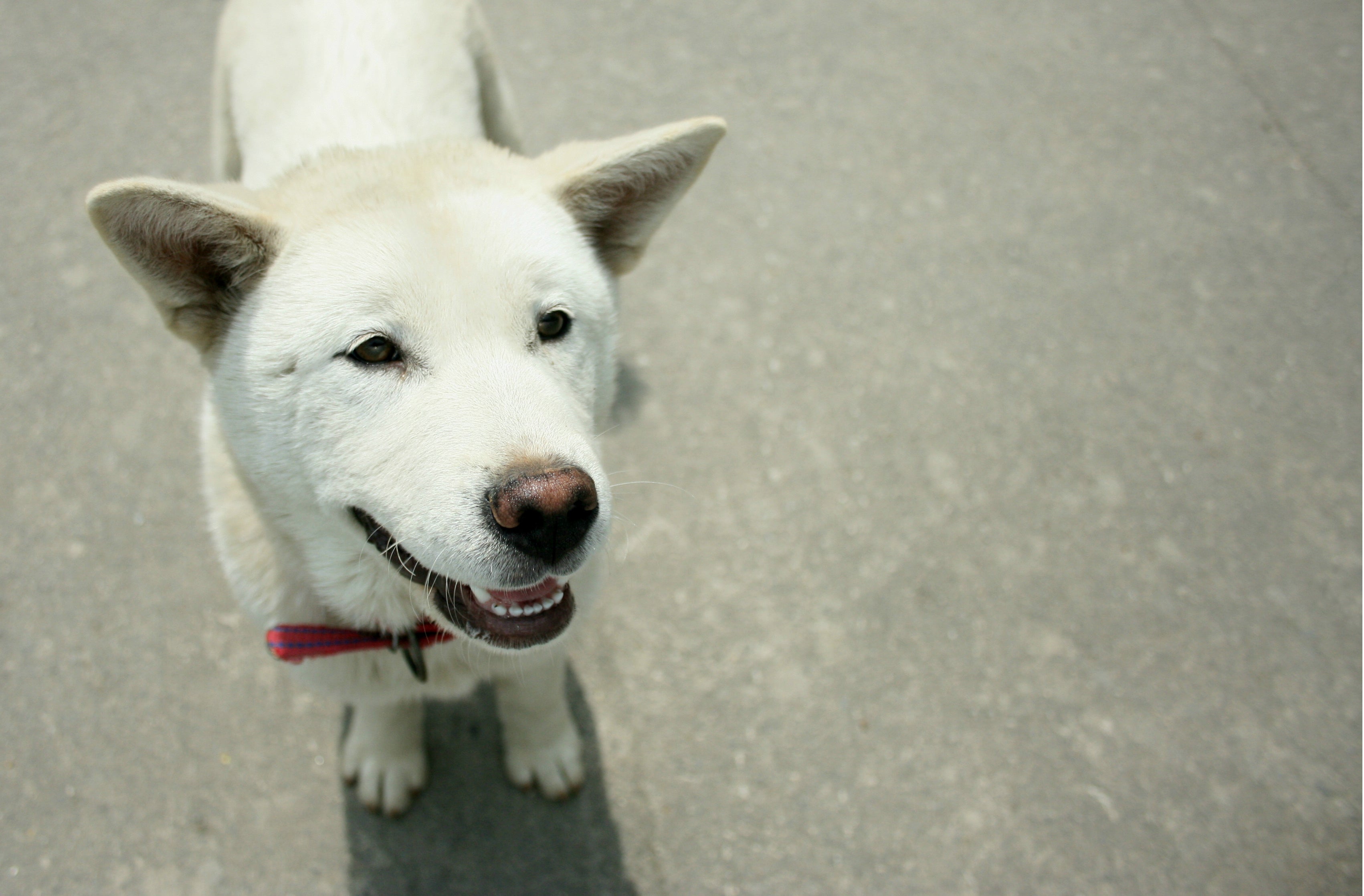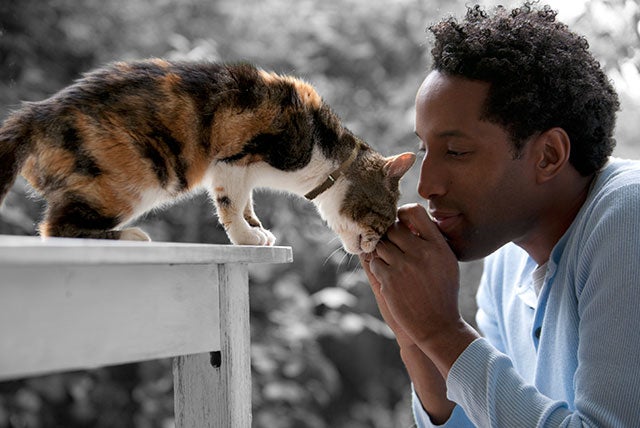Jindo
The Jindo, often called the Korean Jindo, is a vigilant and smart dog hailing from an island off the coast of South Korea. They are independent thinkers who have been bred to guard. Their bodies feature pricked ears and a curved tail as well as a double coat. Robust, bold, and strong, the Jindo is a brave dog that usually stays loyal and devoted to one person.
Breed characteristics carousel
Learn More
Need to Know
- Dog suitable for owners with some experience
- Extra training required
- Generally healthy breed
- Enjoys vigorous walks
- Medium dog
- Minimal drool
- Requires grooming
- Chatty and vocal dog
- Barks and alerts to visitors/anything unusual
- Could have issues with unknown dogs but gets along with known dogs
- May need additional training to live with other pets
- May need additional supervision to live with children
- Needs a large yard, in suburban or rural areas
- AKC Registered Breed

Personality
Cautious and reserved, the Jindo dog is wary of others but extremely faithful to its owner. They are fastidious and polite dogs who love to have a job to do, namely protecting. They are active and intelligent but can often be stubborn in training.
Indigenous Korean dogs brought by the Mongols in the 13th century make up the basis for the Jindo, which is named after Jindo Island off the Korean coast. The dogs became isolated on the island and a pure strain developed. The Korean government named the dogs a National Treasure in 1938 and the dogs marched at the Seoul Olympics in 1988. They are relatively rare in the United States, although sometimes seen in Korean-American communities.
Because of the dog’s loyalty to one person and its independence, Jindo owners should have some experience with dogs. They need good leadership that is consistent and an owner who can cater to their big brains. They can have separation anxiety, which will need to be managed. Even indoors, they will follow their owners from room to room. Exercise and mental stimulation needs will need to be met daily.
The Jindo dog is full of energy and loves free running, walking, hiking, and more. They are athletic and will want to participate in physical activities with their owners. They love having a job to do. They generally are not interested in interacting with other dogs.
Jindos can get by with smaller spaces like apartments, but they do best when they have access to a lot of space. They can jump and climb, so a high and secure fence is a must.
Meticulous and clean, the Jindo likes to stay neat. Their double coats need brushing with a slicker or pin brush. Because the coats repel dirt and water, they usually don’t smell. The Jindo sheds heavily twice a year, so you’ll want to get your vacuum ready.
Serious and smart, the Korean Jindo dog is an independent thinker who loves to problem-solve. They have an even-keeled temperament and are thoughtful. They’ll need obedience training early and ongoing socialization in order to see their full potential. They potty train easily.
As a one-person dog, the Jindo does best in homes with a single person but can be a good family dog. They are loyal and utterly devoted and will become gentle and faithful companions with proper training and socialization.
The cost of a Jindo from a breeder is significantly more than the cost of adopting one from a local shelter or rescue. The adoption fee usually covers additional items such as spaying or neutering, vaccines, and microchipping.

Learn more about feeding and caring for your Jindo on Purina.
Did You Know?
- Jindo dogs are good jumpers and climbers so high and secure fences are a must.
- Jindos marched in the Seoul Olympics in 1988.

